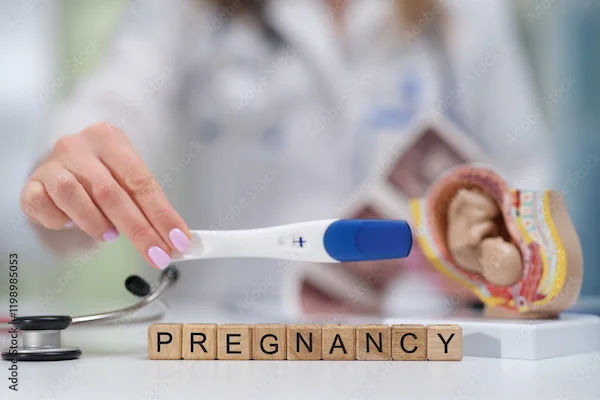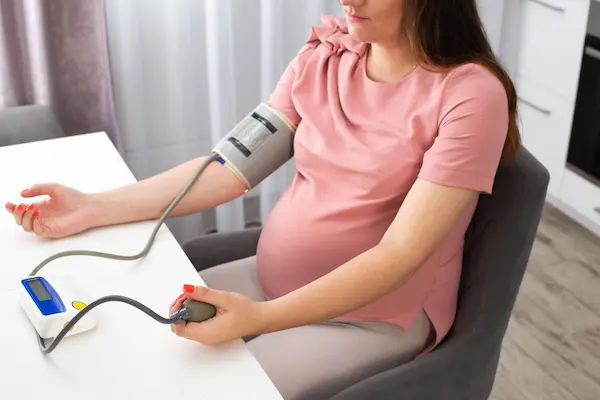Your Complete Guide to IVF: Process, Success, and What to Expect
Everything you need to know about IVF. Understand the process, success rates, costs, and emotional journey of in vitro fertilization with our comprehensive guide.

Written by Dr. Dhankecha Mayank Dineshbhai
Reviewed by Dr. Shaik Abdul Kalam MD (Physician)
Last updated on 13th Jan, 2026
.webp?tr=q-80,f-webp,w-350,dpr-2,c-at_max 700w)
Introduction
The journey to parenthood can be unique for everyone. For many individuals and couples facing challenges with conception, In Vitro Fertilization (IVF) has become a beacon of hope and a widely used assisted reproductive technology. But what exactly does the IVF process entail? It’s natural to have questions about the steps, success rates, costs, and emotional impact. This comprehensive guide is designed to demystify IVF treatment, providing you with a clear, step-by-step overview from initial consultation to the pregnancy test. Whether you're just beginning to explore your options or are preparing for your first cycle, we'll cover what you need to know about the IVF journey, its potential, and how to navigate it with confidence.
What is IVF (In Vitro Fertilization)? A Basic Overview
In Vitro Fertilization (IVF) is a complex series of procedures used to help with fertility or prevent genetic problems and assist in the conception of a child. During IVF, mature eggs are collected (retrieved) from ovaries and fertilized by sperm in a lab. Then the fertilized egg (embryo) or eggs (embryos) are transferred to a uterus. One full cycle of IVF takes about three weeks. Sometimes these steps are split into different parts and the process can take longer.
The term "in vitro" is Latin for "in glass," referring to the fact that fertilization occurs in a laboratory dish rather than inside the human body. This fundamental difference allows specialists to overcome a wide range of fertility issues, from blocked fallopian tubes to male factor infertility. Since the first successful IVF birth in 1978, the technology and techniques have advanced dramatically, improving IVF success rates and making it a viable option for millions worldwide, including for single parents and samesex couples through the use of donor eggs or sperm.
Who is a Candidate for IVF Treatment?
IVF is rarely the first step in treating infertility except in cases of complete tubal blockage. It's often considered after other, less invasive methods have failed.
Common Medical Reasons for IVF
- Blocked or Damaged Fallopian Tubes: This makes it impossible for the egg to be fertilized or travel to the uterus.
- Male Factor Infertility: This includes low sperm count, poor sperm motility, or abnormal sperm morphology. Techniques like ICSI can help.
- Ovulation Disorders: If ovulation is infrequent or absent, fewer eggs are available for fertilization.
- Endometriosis: When tissue similar to the uterine lining implants and grows outside the uterus, it can affect the function of ovaries, uterus, and fallopian tubes.
- Unexplained Infertility: For about 1020% of couples, no specific cause of infertility is found. IVF can be an effective treatment.
- Genetic Disorders: Parents who are carriers of genetic diseases may use IVF with Preimplantation Genetic Testing (PGT) to select embryos without the condition.
IVF for LGBTQ+ Families and Single Parents
IVF has opened doors to biological parenthood for many. Samesex female couples may use IVF with donor sperm. Single women and those in samesex relationships can also pursue IVF treatment to build their families. For male samesex couples, IVF is used in conjunction with a gestational carrier (surrogate) and an egg donor.
The StepbyStep IVF Process Timeline
Understanding the IVF process step by step can alleviate anxiety and help you feel more in control.
Step 1: Ovarian Stimulation and Monitoring
Instead of the single egg that normally develops each month, the goal is to stimulate the ovaries to produce multiple eggs. This is done using hormonal injections for 814 days. During this time, you will be closely monitored through blood tests and transvaginal ultrasounds to track egg development and adjust medication dosages. This phase is critical for the IVF journey.
Step 2: Egg Retrieval Procedure
This minor surgical procedure is performed under sedation 3436 hours after a "trigger shot" that finalizes egg maturation. Using an ultrasound probe to guide a thin needle through the vaginal wall into the ovarian follicles, the fluid (containing the eggs) is gently suctioned out. The procedure typically takes 2030 minutes. You might experience some cramping afterward.
Step 3: Sperm Collection and Preparation
On the same day as egg retrieval, a sperm sample is provided by the male partner or a donor. The sample is "washed" and spun at high speed in a lab to separate the healthy, mobile sperm from the seminal fluid.
Step 4: Fertilization and Embryo Development
This is the true "in vitro" step. The eggs and sperm are combined in a special culture dish and monitored.
Standard Insemination vs. ICSI (Intracytoplasmic Sperm Injection)
In standard insemination, sperm are placed near an egg and one sperm naturally fertilizes it. ICSI (Intracytoplasmic Sperm Injection) is used for severe male factor infertility, where a single healthy sperm is directly injected into each mature egg. This greatly improves fertilization chances. The fertilized eggs become embryos, which are cultured for 35 days until they reach the blastocyst stage, which is often ideal for transfer.
Step 5: Embryo Transfer
This is a simple procedure that feels similar to a Pap smear. A catheter containing one or more selected embryos is passed through the cervix into the uterus under ultrasound guidance. If successful, an embryo will implant in the uterine lining within a few days.
The Two Week Wait and Pregnancy Test
The period after the transfer is known as the "twoweek wait." You may be prescribed progesterone supplements to support the uterine lining. After approximately 914 days, a blood test (beta hCG test) is done to confirm if implantation and pregnancy have occurred. Apollo24|7 offers convenient home collection for this crucial beta hCG test, allowing you to get results without a clinic visit.
IVF Success Rates: Understanding the Numbers
IVF success rates are not a guarantee but a statistical probability. They are highly dependent on several factors.
How Age Impacts IVF Success Chances?
The most significant factor is the age of the person providing the eggs. Younger eggs have higher rates of fertilization, embryo development, and implantation, and a lower risk of chromosomal abnormalities. For example, data from the Society for Assisted Reproductive Technology (SART) shows that for women under 35, the live birth rate per egg retrieval can be over 50%, while for women over 42, it may drop to below 10%.
Other Factors Influencing IVF Outcomes
- Cause of Infertility: Some diagnoses have better outcomes than others.
- Embryo Status: Transferring blastocyst stage embryos (day 5) generally has higher success rates than day3 embryos.
- Ovarian Reserve: The quantity and quality of eggs available.
- Lifestyle Factors: Smoking, high BMI, and high alcohol consumption can negatively impact success.
- Clinic Expertise: The experience and technology available at the fertility clinic play a role.
Risks and Side Effects of IVF Treatment
Like any medical procedure, IVF carries potential risks.
Physical Side Effects (e.g., OHSS)
Side effects from fertility drugs can include mood swings, headaches, hot flushes, and abdominal bloating. A more serious risk is Ovarian Hyperstimulation Syndrome (OHSS), where the ovaries become swollen and painful. Symptoms can include severe abdominal pain, nausea, and rapid weight gain. Modern protocols and close monitoring have made severe OHSS rare. Other risks include bleeding or infection from egg retrieval and an increased chance of multiple pregnancy if more than one embryo is transferred.
Emotional and Psychological Considerations
The IVF journey is often described as an emotional rollercoaster. The combination of hormonal medications, high financial investment, and the anxiety of waiting for results can lead to significant stress, anxiety, and depression. It's crucial to build a strong support system, communicate openly with your partner, and seek professional counseling if needed. Many clinics offer psychological support services.
The Cost of IVF: Financial Planning and Options
The cost of IVF in India can vary widely depending on the city, clinic reputation, and specific treatments required (e.g., ICSI, genetic testing). A single cycle can range from ₹1.5 lakh to over ₹4 lakhs. This typically includes medications, monitoring, procedures, and embryo transfer but not always the cost of initial diagnostic tests or frozen embryo transfer (FET) cycles. It's important to get a detailed, itemized cost breakdown from your clinic. Some insurance plans may offer partial coverage, and many clinics provide financing options or payment plans.
Consult Top Specialists
Preparing Your Body and Mind for an IVF Cycle
Preparation can optimize your chances and help you cope.
Pre-IVF Tests and Health Checks
Before starting, both partners will undergo a battery of tests. This includes blood tests to check hormone levels (like AMH for ovarian reserve), infectious disease screening, a semen analysis, and a uterine evaluation (hysteroscopy or saline sonogram) to ensure the cavity is normal. Consulting a doctor online with Apollo24|7 can be a great first step to understand which preliminary tests you might need.
Lifestyle Changes to Improve Success
- Nutrition: A balanced, Mediterranean-style diet rich in antioxidants is often recommended.
- Supplements: Folic acid is essential. Your doctor may also recommend CoQ10, Vitamin D, or others based on your profile.
- Exercise: Moderate exercise is beneficial, but intense workouts may need to be reduced during stimulation.
- Avoid: Smoking, alcohol, and recreational drugs are strongly discouraged for both partners.
Alternatives to IVF: Exploring Other Paths to Parenthood
IVF is not the only option. Depending on your diagnosis, simpler treatments may be suggested first.
Intrauterine Insemination (IUI)
Often a firstline treatment, IUI involves "washing" sperm and then placing it directly into the uterus around the time of ovulation. It's less invasive and less expensive than IVF but has lower success rates.
Donor Eggs or Sperm
For individuals with no viable eggs or sperm, using donor gametes can be a highly successful path to pregnancy using IVF. This allows one partner to carry the pregnancy and experience childbirth.
Conclusion
The path of IVF treatment is one of profound hope, resilience, and scientific marvel. While it can be demanding—emotionally, physically, and financially—it has helped millions of people worldwide achieve their dream of parenthood. Understanding the IVF process step by step, from initial stimulation to the anxious twoweek wait, empowers you to be an active participant in your care. Remember, success is influenced by a multitude of factors, and a single cycle's outcome is not a measure of your worth or your future potential. Building a trusted partnership with your medical team, prioritizing your emotional wellbeing, and seeking support are just as important as the medical procedures themselves. If you are considering this path, your first and most crucial step is to seek expert guidance. Consulting a fertility specialist with Apollo24|7 can provide you with personalized advice, answer your specific questions, and help you determine if IVF is the right choice for your unique journey to build a family.
Consult Top Specialists
Consult Top Specialists

Dr. Ajay K Sinha
General Physician/ Internal Medicine Specialist
30 Years • MD, Internal Medicine
Delhi
Apollo Hospitals Indraprastha, Delhi
(225+ Patients)

Dr. Dhanraj K
General Physician/ Internal Medicine Specialist
25 Years • MBBS, MD Internal Medicine - Osmania Medical College, Hyderabad
Hyderabad
Apollo Hospitals Jubilee Hills, Hyderabad
(425+ Patients)

Dr. Suraja Nutulapati
General Physician/ Internal Medicine Specialist
10 Years • MBBS, MD (Internal Medicine)
Hyderabad
Apollo 24|7 Clinic, Hyderabad
(975+ Patients)

Dr. Mohammed Kamran
General Practitioner
5 Years • MBBS, FIDM
Nashik
Apollo 24|7 Clinic - Maharashtra, Nashik

Dr. Swarna Deepak K
General Physician/ Internal Medicine Specialist
20 Years • MBBS: MD (Internal Medicine) MRCP (UK), EDIC (European Diploma in Critical Care), IDCCM, IFCCM (Critical Care), FID (Royal Liverpool Academy)
Hyderabad
Apollo Hospitals Jubilee Hills, Hyderabad
(425+ Patients)
Consult Top Specialists

Dr. Ajay K Sinha
General Physician/ Internal Medicine Specialist
30 Years • MD, Internal Medicine
Delhi
Apollo Hospitals Indraprastha, Delhi
(225+ Patients)

Dr. Dhanraj K
General Physician/ Internal Medicine Specialist
25 Years • MBBS, MD Internal Medicine - Osmania Medical College, Hyderabad
Hyderabad
Apollo Hospitals Jubilee Hills, Hyderabad
(425+ Patients)

Dr. Suraja Nutulapati
General Physician/ Internal Medicine Specialist
10 Years • MBBS, MD (Internal Medicine)
Hyderabad
Apollo 24|7 Clinic, Hyderabad
(975+ Patients)

Dr. Mohammed Kamran
General Practitioner
5 Years • MBBS, FIDM
Nashik
Apollo 24|7 Clinic - Maharashtra, Nashik

Dr. Swarna Deepak K
General Physician/ Internal Medicine Specialist
20 Years • MBBS: MD (Internal Medicine) MRCP (UK), EDIC (European Diploma in Critical Care), IDCCM, IFCCM (Critical Care), FID (Royal Liverpool Academy)
Hyderabad
Apollo Hospitals Jubilee Hills, Hyderabad
(425+ Patients)
More articles from pregnancy
Frequently Asked Questions
How painful is the IVF process?
Most discomfort comes from the hormonal injections and bloating during stimulation. The egg retrieval is done under sedation, so you don't feel pain during the procedure. Afterward, you may experience cramping. The embryo transfer is typically painless, similar to a Pap smear.
What is the typical success rate for a first IVF cycle?
IVF success rates for a first cycle vary greatly by age. For




